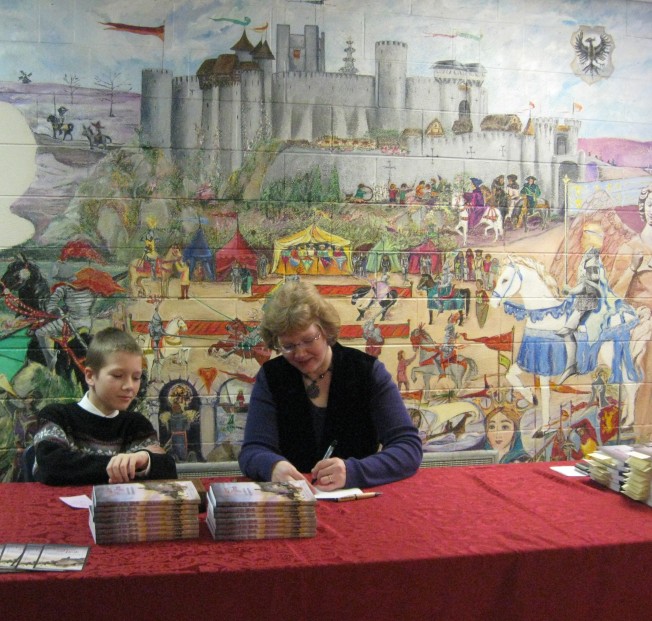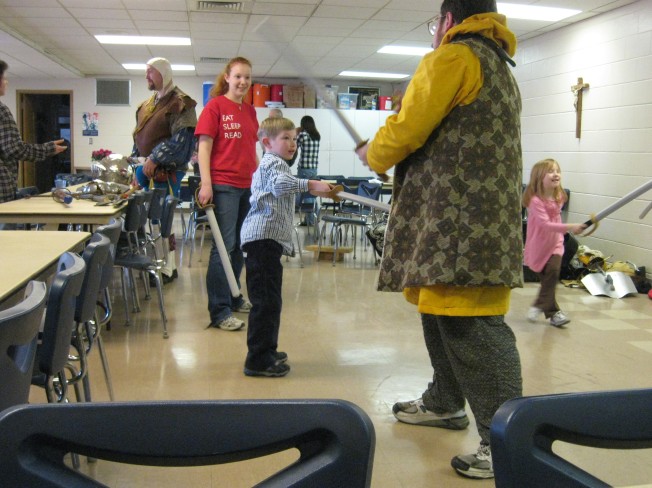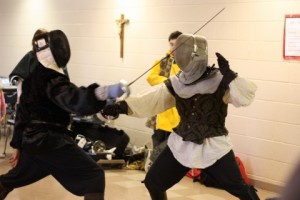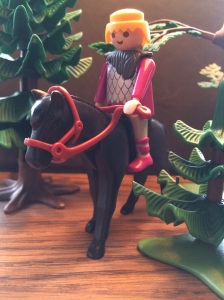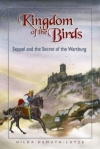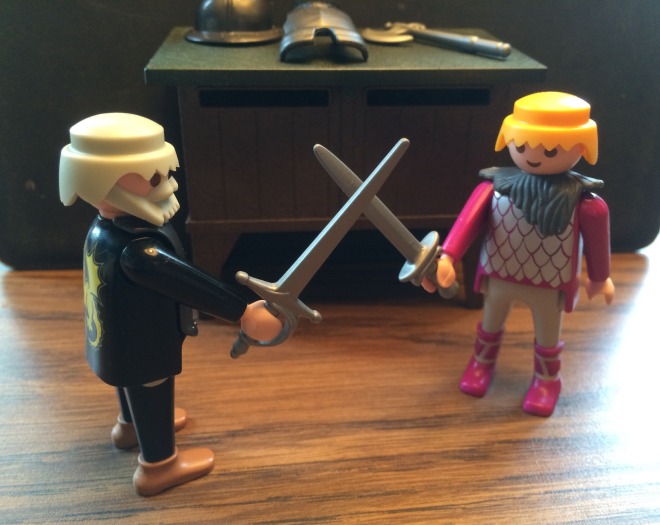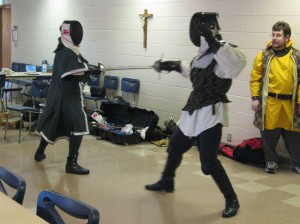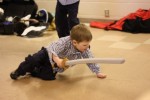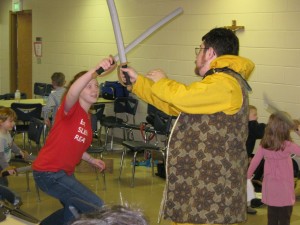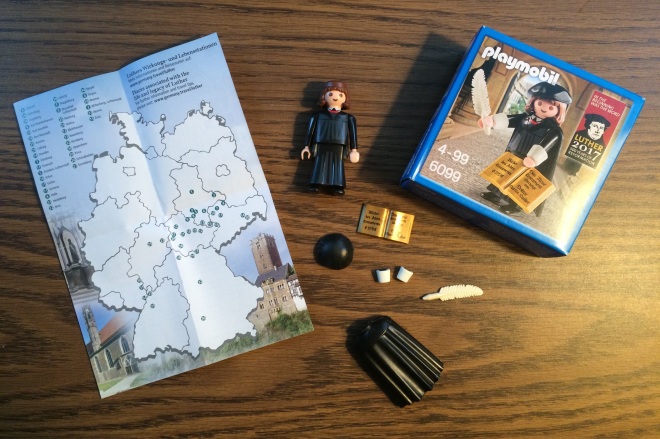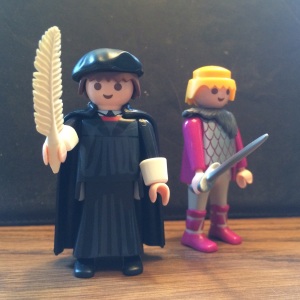
On my writing desk is a coffee-stained Bierdeckel, or coaster, advertising the Stadtbrauerei, the city brewery, of Spalt, near Nuremberg, Germany. This souvenir was a gift from my friend and mentor Dr. Gottfried Krodel, a Luther scholar whose help was invaluable as I conducted research for a novel set during the Reformation. In the course of our conversations Doc Krodel came to refer to the young protagonist of Kingdom of the Birds as “our Seppel.”
In the first chapter, fourteen-year-old Seppel, whose full name is Josef Burkhardt the Younger, is at home in Spalt with his widowed mother and three sisters. From faraway Wittenberg, Seppel’s uncle, Georg Burkhardt, a scholar better known by his Latinized name of Spalatinus, or Spalatin, meaning “one from Spalt,” summons his nephew to a year of service on behalf of the Elector of Saxony.
While Seppel and his family are fictional, Spalatin was an important historical figure. In Wittenberg Spalatin served as tutor to the nephews of Frederick the Wise, Elector of Saxony, and as Frederick’s chaplain, librarian, and secretary. In his role at the Saxon court Spalatin corresponded with Martin Luther during the political and religious turmoil of the early days of the Reformation.

In 2010, the year that Kingdom of the Birds was published, the city of Spalt celebrated a 500th anniversary jubilee that included a tribute to Georg Burkhardt as a “great son” of Spalt. A memorial sculpture features the scholar in front of a wall with a hole in the shape of his silhouette, showing the Reformation figure symbolically breaking free from the Catholic church.
To me this Spalatin-shaped portal is also the doorway through which I peered when I began exploring the world of sixteenth-century Germany. By creating a fictional nephew for Spalatin, I was able to introduce my protagonist to other significant figures of the Reformation.
When I visit Spalt, I will be sure to get a photo of myself at that portal. My husband and I will most likely take a tour of the Stadtbrauerei, sample the wares, and raise a glass in memory of Spalatin, Doc Krodel, and, of course, “our Seppel.”




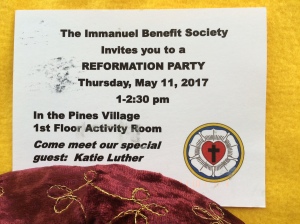 Lutheran Church in Valparaiso, Indiana, promised a special guest appearance by Katie Luther, also known as the “Mother of the Reformation.”
Lutheran Church in Valparaiso, Indiana, promised a special guest appearance by Katie Luther, also known as the “Mother of the Reformation.”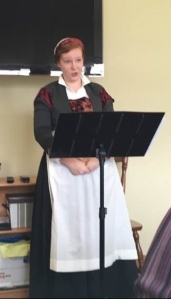 Providing this entertainment for the church group was a family affair. My inspiration for writing “A Visit with Katie Luther” was an earlier piece by Immanuel member and family friend Constance Bretscher, my children’s piano teacher. At the Reformation party my daughter Elena performed the dramatic monologue wearing a costume designed by her sister Katrina.
Providing this entertainment for the church group was a family affair. My inspiration for writing “A Visit with Katie Luther” was an earlier piece by Immanuel member and family friend Constance Bretscher, my children’s piano teacher. At the Reformation party my daughter Elena performed the dramatic monologue wearing a costume designed by her sister Katrina.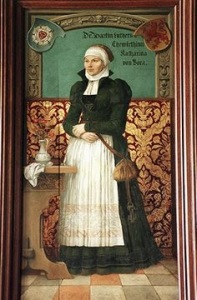 with brief stage directions and convenient page turns. I encourage anyone interested in providing simple entertainment for a Reformation celebration to consider “A Visit with Katie Luther,” available as a free download here:
with brief stage directions and convenient page turns. I encourage anyone interested in providing simple entertainment for a Reformation celebration to consider “A Visit with Katie Luther,” available as a free download here: 